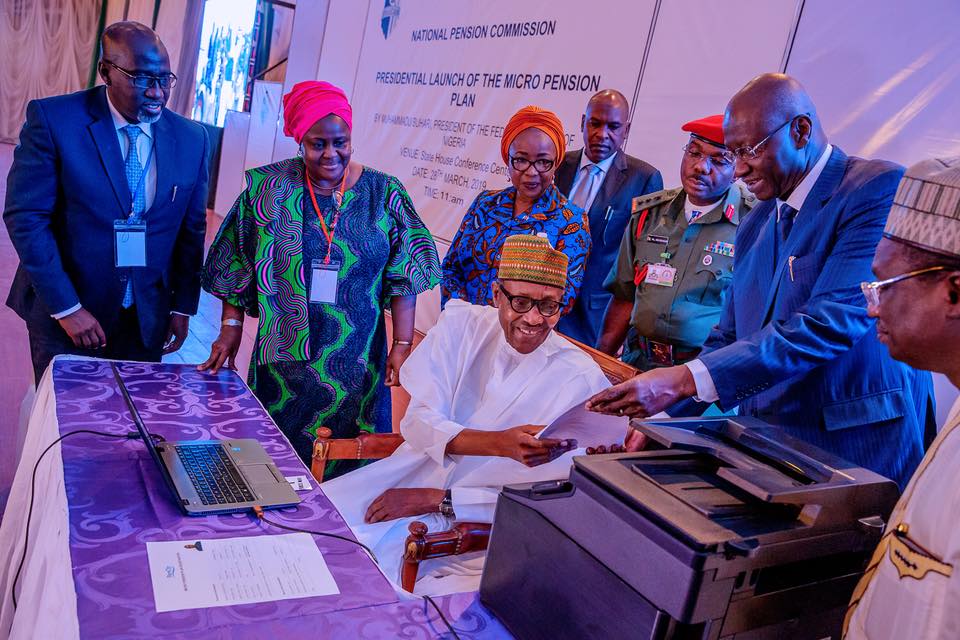My both parents are pensioners and I am fortunate to still have them around. Thanks to the pandemic, I spent more time with them in 2020 than I have done in the last 10 years. So, we could say I have watched the pensioners’ life lived in HD. That life has got me thinking about my own future, your future, and how to make the lives of current or incoming pensioners better.
After 35 years of service at some of the most important institutions in this country, people retire to pensions of less than N1 million. They get half of that, one or two years after retirement — that’s if they do not die on accreditation queues at government offices. But we would deal with that some other time. Let’s stick to the issue at hand.
Sometime in 2020, the naira lost ground to the dollar, trading at N503 to a dollar at the parallel market. In order not to risk the wrath of the governor of the Central Bank of Nigeria (CBN), Godwin Emefiele, we would say that the naira is trading at 410 to the dollar. As the governor said, analysts are supposed to know that the naira value cannot be determined by the parallel market. Therefore, for the purpose of this conversation, we would assume $1 is N410.
Let’s do some maths: If you put N1 million in your pension fund in January 2015, the best returns any pension fund could have given you in a year — on the average — is 15 percent. With the inflation rate at double digits for every year after 2016 — over 16 percent as of January 2021 — the actual interest (interest rate minus inflation rate) is less than zero percent per annum. But let us assume you make five percent off your N1 million every year since 2015. That will amount to N1.28 million in 2020, if interest is compounded.
Advertisement
With dollar trading at $1 to N197 in January 2015, your N1 million was worth $5,076. In 2020, your N1.28 million is worth $2,439. So while you may have gained some money in naira, you have lost a lot in dollar terms. Some argue that most pensioners do not spend in dollars, suggesting that there is no need to watch their earnings in dollars. But the dollar affects virtually everything in Nigeria.
So, let’s take a look at a dollarised pension scenario, and if there is need to look at it in dollar terms.
IF WE ‘DOLLARISE’ THE PENSION FUNDS
If you had N1 million in your pension fund in 2015, when the dollar sold for only N197, and your PFA invested your funds in a dollar fund that gives just two percent per annum. Your N1 million ($5,076) investment in 2015 would have compounded to $5,604 by 2020. In 2021, your $5,604 would be N2,297,640 at N410 per dollar.
Advertisement
So as a pensioner, who has no interest in watching your pension in dollars. But has an immense interest in spending your pension in naira, your funds have legitimately doubled — in naira terms — in five years. Is this not good for every pensioner?
If you ask my father to choose between a naira fund that gives him N1.28m in five years or a dollar fund that gives him N2.3m in the same five years for an investment of the same N1m, your guess is as good as mine. He would go for the dollar fund.
But permit us to assume many pensioners from my parents’ generation are not bothered by my curious end game and may not be impressed by a 1% to 7% interest rate most dollar funds offers. My millennial friends and Gen Z colleagues are not like that, they understand the times and are interested in what their pension funds would look like in 10 to 30 years’ time. So this matters to them.
I have worked for seven years since leaving the university, and I have very few millions in my pension fund. Conservatively, my peers and I have between N1m to N7m in our pension funds. All things being equal, we may not touch that fund till we are 50, 60 — in 2040 or 2050.
Advertisement
Based on my knowledge of the naira, it takes a heavy devaluation every four years, losing between 20% to 80% of its value every election year. In 1999, $1 was about N22. By 2003, it was over N120. Oil and a suite of good policies kept the naira stable at N125 to a dollar in 2007, but by 2011, it was N165. By 2015, dollar was N300 and N360 in 2019.
Based on these historical figures, we can guess what $1 will be in 2040. So your N1m in 2021 is $2,440. In 2040, that same money may just be $1,000 or less. The dollar does not take this kind of hit.
I would be naive to tell you there are no downsides to taking this dollar position; there are challenges. But they are foreseeable and manageable. This plan may put extra pressure on the naira. Agreed. But this is a problem we pay our monetary policy managers to solve.
PENSION REFORM ACT REVIEW
President Muhammadu Buhari-led admin and PenCom, under the leadership of Aisha Dahir-Umar, have supervised notable reforms, including formal kick-off of the micro-pension plan in 2019. This team, I believe, can do more to improve the diversity of pension plans in the country.
Advertisement
In 2020, the National Pension Commission (PenCom) proposed amendments to the Pension Reform Act of 2014. Notable among the proposal was the call to disallow Pension Fund Administrators (PFAs) from opening offices abroad, while asking them to shut existing offices.
“The Commission [PenCom] would not be able to monitor branch offices of PFAs and PFCs outside Nigeria,” the proposal read. As harmless as this may seem, it may just be shutting doors on the possibilities of ever ‘dollarising’ our pension funds.
Advertisement
On behalf of my millennials and Gen Z friends and colleagues, we would love to recommend that PenCom includes in its proposal, the rights of citizens to choose how their pension fund is invested — in dollar or naira. Pension funds are too long-term to be kept in naira.
Follow Tijani on Twitter and across major social media platforms @OluwamayowaTJ
Advertisement
Add a comment







